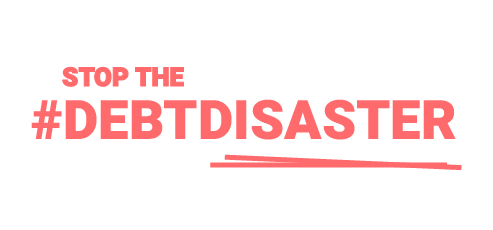FREQUENTLY ASKED QUESTIONS
Selling people unaffordable credit is harmful. It is neither generous nor good economic policy. Setting people up to fail, to lose their homes or declare bankruptcy, is something Australia decided we didn’t want to do. More debt will only worsen someone’s financial situation if they are struggling to make ends meet.
APRA’s standards and guidance does not provide protection or rights for individual borrowers. The purpose is ensuring there are processes for risk management by the bank, rather than consumer protection. There are no specific requirements to ensure loans are suitable.
APRA’s role is to protect the financial stability of banks, not to protect borrowers.
Products like credit cards or reverse mortgages are complex and banks are in a much better position to assess a person’s ability to repay than an individual borrower. For most people, purchasing a car or a home is only something they will do a few times in their lives, while the banks are well practiced at these transactions. Open Banking means lenders can use technology to very quickly and accurately assess whether a loan is suitable and affordable for someone.
Further, under the current system, even if lender has contravened their responsible lending obligations, borrowers must still generally pay back the principal amount borrowed. Borrowers are still ‘on the hook’ for the loan.
Responsible lending obligations don’t apply to loans that are predominantly for a business purpose. For example, if a small business obtains a loan to purchase a motor vehicle, which is to be used 60% of the time for work purposes but will also be available for personal use, the loan is not subject to the responsible lending obligations.
There are very few protections for small businesses. Under these changes, there will be even fewer as the ‘predominant purpose’ test referred to above would be removed. Some small business lenders are not required to be members of AFCA, there are no caps on interest and fees, and no obligations to check affordability. These changes will open the door to a wave of sham small business lending, where these rogue lenders give predatory loans to families under the pretence of being for a ‘business purpose’.
While we may have not had a sub-prime lending crisis like the United States, it is wrong to think Australia didn’t have home-grown lending problems before 2009. Small investors and retirees were devastated by the collapse of Storm Financial, where unsuitable loans were taken out to invest in the failed company.
Our organisations have assisted hundreds of consumers that suffered real harm from unsuitable loans made before 2009. Australia already has the second highest level of household debt in the world. Many families are already leveraged to their eyeballs, even under historically low interest rates. Lax lending standards will push many people over the edge.
The Government’s proposal would create a complex and illogical regulatory system for lending that has one set of rules for the banks, and one set for non-banks. The Government is removing protections for consumers and backflipping on the very first recommendation of the Banking Royal Commission. Moving oversight of bank lending to APRA is giving the banks a free kick, while other lenders would still be regulated by ASIC. The proposed changes will harm, people, families and the economy. People will have to forgo the basics like food, rent and power just so they can pay their loans.
People who struggle to make repayments are very profitable. They often pay the most in fees and charges. Bankers and brokers are incentivised to sell as many loans as possible through bonuses, commissions and sales targets. Many people will prioritise paying the bank over paying for other essentials, so while they might not technically default, they are in significant hardship.
The “new protections for consumers” refers to changes to proposed payday loans and consumer leases. These changes are far weaker than that proposed by an Independent Review in 2017. The proposed ‘reforms’ means that a person who is employed can still spend 40% of their income on payday loans and consumer leases.
Borrowers can make complaints to AFCA, but they won’t be able to make complaints about breaches of responsible lending laws where these laws no longer exist.
AFCA’s role will likely be limited to ‘mal-administration’, that is, whether the lender followed its own policies and processes. AFCA is unlikely to be able to consider complaints about whether the loan was suitable to the borrower’s needs. It’s also unclear whether AFCA could award redress in the same way as under responsible lending laws.

